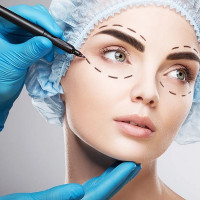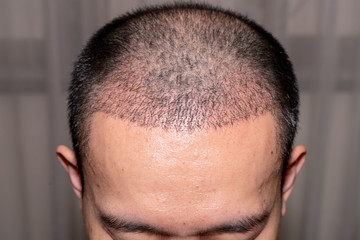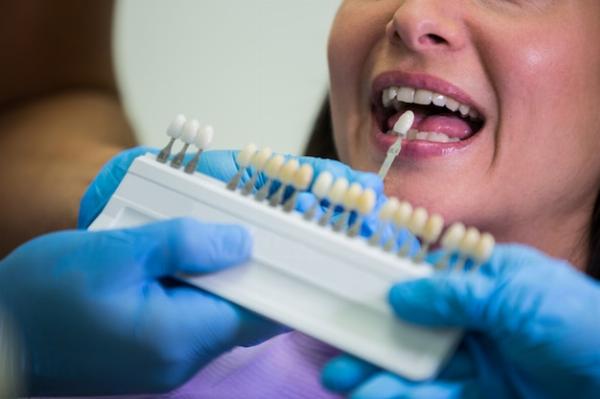Melasma Treatment: Your Path to Clearer Skin

Melasma is a common skin condition characterized by brown or gray-brown patches, primarily appearing on the face. It often arises due to hormonal changes, sun exposure, and genetic factors, leading to discomfort and low self-esteem for many individuals. Recognizing the emotional toll Melasma Treatment in Dubai can take is crucial in addressing it effectively.
Identifying the Causes of Melasma
To tackle melasma, it's important to understand its triggers. Hormonal fluctuations during pregnancy, contraceptive use, or hormone replacement therapy can trigger its onset. Sun exposure is another major factor, as ultraviolet rays can stimulate melanin production, exacerbating dark patches. Additionally, genetic predisposition plays a significant role; individuals with a family history of melasma are more likely to develop it themselves.
Signs and Symptoms of Melasma
Melasma typically manifests as symmetric patches on the face, primarily affecting the cheeks, forehead, nose, and chin. These patches can vary in size and may become more prominent with sun exposure or hormonal changes. Observing these signs early on can help individuals seek timely treatment, preventing further darkening of the skin.
Importance of Consulting a Dermatologist
Consulting a dermatologist is a vital first step in managing melasma. A professional can accurately diagnose the condition, distinguishing it from other skin disorders that may present similarly. They can also recommend appropriate treatment options based on individual skin types and concerns. Understanding one’s skin is fundamental to selecting effective treatments.
Topical Treatments for Melasma
Topical treatments are often the first line of defense against melasma. These products usually contain active ingredients designed to lighten pigmentation and promote skin renewal. Hydroquinone, a popular depigmenting agent, helps reduce the appearance of dark spots by inhibiting melanin production. Another effective ingredient is tretinoin, which promotes skin cell turnover, helping to fade discolored patches.
In addition to these common ingredients, azelaic acid and kojic acid are effective alternatives that can lighten hyperpigmentation. Regular use of these topical treatments, in conjunction with sun protection, can yield significant improvements.
The Role of Chemical Peels
Chemical peels can significantly improve skin texture and tone for individuals struggling with melasma. In this procedure, a chemical solution is applied to the skin, causing it to exfoliate and eventually peel off. This process reveals fresher, less pigmented skin underneath. Glycolic acid and salicylic acid peels are particularly beneficial for melasma, helping reduce pigmentation while improving overall skin appearance.
While chemical peels can be effective, it’s essential to approach them with caution. Depending on the severity of melasma, individuals should consult a skincare professional to determine the most suitable peel for their skin type.
Laser Treatments for Melasma
Laser therapy is an advanced treatment option that can target melasma effectively. Various types of lasers, including fractional lasers and Q-switched lasers, can penetrate deeper layers of skin, breaking down melanin deposits. These treatments can lead to noticeable results and are typically non-invasive.
It’s important to keep in mind that while laser treatments can provide significant improvements, they may require multiple sessions to achieve the desired outcome. Consulting with a qualified professional ensures that the chosen treatment is safe and tailored to individual needs.
Sun Protection: A Crucial Step
Sun protection is paramount in any melasma treatment regimen. Exposure to UV rays can significantly worsen existing pigmentation and trigger new dark patches. Using a broad-spectrum sunscreen with an SPF of at least 30 is essential, as it protects the skin from both UVA and UVB rays.
In addition to sunscreen, wearing protective clothing and seeking shade during peak sun hours can further minimize sun exposure. Incorporating these habits into your daily routine can help safeguard against future melasma flare-ups and promote overall skin health.
Lifestyle Changes for Skin Health
In conjunction with treatment options, implementing healthy lifestyle changes can enhance skin clarity. A balanced diet rich in antioxidants, vitamins, and minerals supports skin health. Incorporating fruits, vegetables, and healthy fats can help combat free radicals that contribute to skin aging and pigmentation issues.
Staying hydrated is equally important, as water helps maintain skin elasticity and can improve overall complexion. Reducing stress through practices such as meditation, yoga, or regular exercise can also benefit skin health, as stress can exacerbate various skin conditions, including melasma.
Seeking Professional Guidance for Personalized Care
Each individual's experience with melasma is unique, requiring a tailored approach for effective treatment. It is essential to work closely with skincare professionals who can evaluate your skin’s specific needs. Together, you can develop a comprehensive treatment plan that combines various approaches tailored to your lifestyle, skin type, and treatment goals.
Maintaining Long-term Results
Once effective melasma treatment is achieved, maintaining results is essential. Consistent use of sun protection, combined with ongoing skincare routines, can help prevent recurrence. Regular follow-ups with skincare professionals can also ensure that any changes in skin condition are addressed promptly, allowing for adjustments to treatment as necessary.
In conclusion, managing melasma effectively is a journey that involves understanding the condition, consulting professionals, and adopting a comprehensive skincare regimen. Emphasizing sun protection, exploring various treatment options, and making beneficial lifestyle changes can lead to clearer, more confident skin. This holistic approach not only addresses the visible signs of melasma but also supports overall skin health and well-being.
Note: IndiBlogHub features both user-submitted and editorial content. We do not verify third-party contributions. Read our Disclaimer and Privacy Policyfor details.







